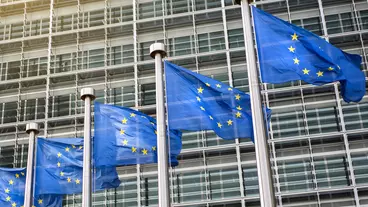EU imposes anti-dumping duties on Chinese aluminium

The EU Commission has announced it will not prolong the 9-month suspension of definitive anti-dumping duties on Chinese aluminium flat-rolled products.
European Aluminium (EA), the industry association representing the aluminium value chain in Europe, welcomes the “long-overdue step” and calls for Europe’s push towards strategic autonomy in aluminium.
Following last year’s anti-dumping investigation conducted by the European Commission, the duties on Chinese aluminium flat-rolled products are set at 14 to 25 % to raise the dumped prices to market conformity and will apply as of 12 July 2022.
European Aluminium welcomes EU decision
“We are relieved that our producers finally are protected against the unfair competition from dumped Chinese flat-rolled products. We welcome exporters as long as they play fair. But Chinese exporters refuse to adhere to global trade rules and have been dumping high-carbon and underpriced goods on our market for years, with devastating economic consequences for European aluminium producers and even worse consequences for the fight against global climate change,” comments Paul Voss, EA’s director general.
European Aluminium points out that the carbon intensity of the primary aluminium production in Europe (EU, Efta, UK) is approximately 6.8 kg of CO2 per kg of aluminium produced compared to a global average of 16.1 kg of CO2 and a Chinese average of 20 kg of CO2.
“Europe must limit its reliance on imports from non-market economies”
European Aluminium calls on policy makers to boost Europe’s defence against unfair trade and implement a robust industrial strategy that prioritizes value chains based on their contribution to the European Green Deal.
“If the recent crises have taught us anything, it’s that Europe must limit its reliance on imports from non-market economies and strengthen its strategic autonomy in the raw materials sector. This is especially important for aluminium because it’s a key component in virtually all clean energy technologies that are needed to accelerate the green transition and end Europe’s dependence on fossil fuels,” concludes Voss.

The EU has decided to extend until 31 March 2025 the suspension of its rebalancing tariffs on US products in the context of the steel and aluminium dispute.

At Euroguss 2024, Plasmatreat will demonstrate how metals and alloys can be optimally prepared for subsequent processes. A highlight is the Anti-Corr coating.

Currently, most European countries are experiencing quite a disappointing construction and building demand which affects the aluminium market.
